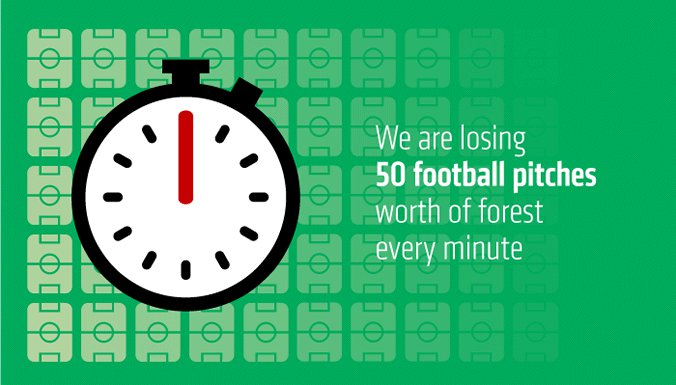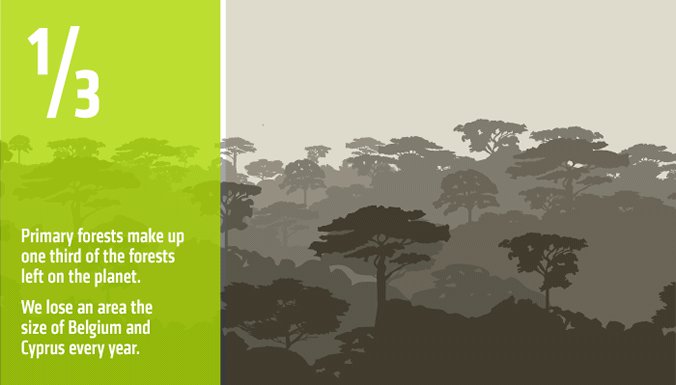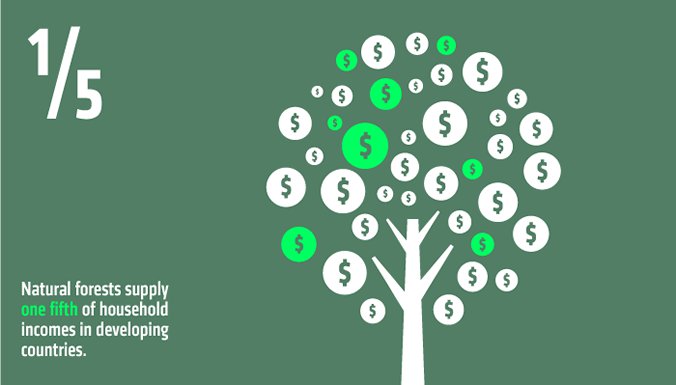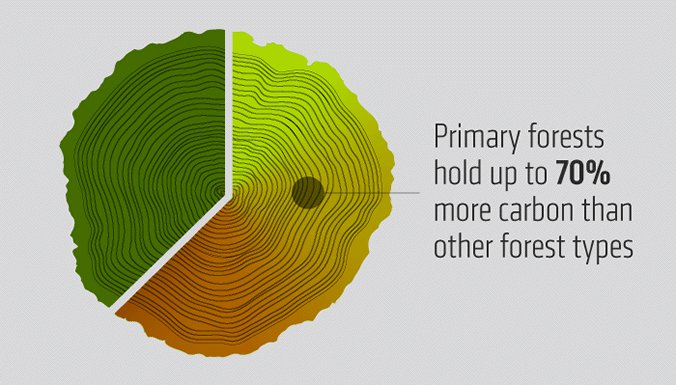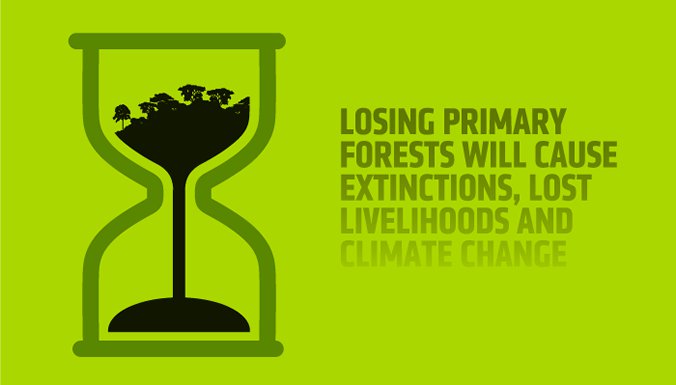Global Witness joins new coalition IntAct – launched with human rights, community and conservation groups – to protect primary forests
Global Witness is a founding member of a new science-based coalition – IntAct (International Action for Primary Forests), which is calling for an end to the industrial exploitation of earth’s remaining primary forests. The coalition is backed by leading international forest scientists and organisations in the fields of development and human rights including Global Witness, the Sierra Club, the Zoological Society of London and other groups like the National Coalition of Indigenous Peoples in the Philippines.
The initiative represents an emerging scientific consensus that primary forests provide unique benefits that other types of forest cannot. IntAct argues that attempts to make industrial-scale activity sustainable in primary forests over the last few decades have not succeeded. The groups are calling on policy-makers to establish primary forests as no-go areas for industrial activity such as industrial logging, mining or oil and gas extraction, which is irreparably shrinking the world’s last forest reserves.
Primary forests are those that regenerate naturally, have never been logged and are particularly special. They make up one third of the forests left on the planet and are vital for nature, forest peoples’ livelihoods and our overall climate. Only about a fifth of our remaining primary forests are protected, just 5 percent of their original extent. At least 4 million hectares of primary forest, an area equivalent to the size of Belgium and Cyprus combined, is being lost every year. Primary forests also protect very large carbon stocks and hold 30-70% more carbon than other types of forest. Protecting primary forests is therefore an essential part of preventing dangerous climate change. Forests contain eight out of ten of the known abundance of land-based plant and animal species, and Primary forests in particular provide home to up half of the species found in tropical forests.
For decades the logging industry has argued that tropical timber can be logged sustainably and is key to creating jobs and financing development around the world. It’s an approach that receives support from several aid donors and financial institutions, in spite of the fact that back in 2007 a World Bank report on forests in the post-conflict Democratic Republic of Congo concluded that: “Industrial timber production has a poor track record in Africa. Over the past 60 years, there is little evidence that it has lifted rural populations out of poverty or contributed in other meaningful and sustainable ways to local and national development.” Evidence for development benefits, let alone environmental sustainability has always been lacking. From the Cameroon to Cambodia, Liberia and the DRC, promises of development benefits have been greatly exaggerated and costs underestimated. While the economic model has long been flawed, the science underpinning the IntAct statement of principles makes it equally clear that industrial scale activities in Primary forests have failed to be environmentally sustainable either.
A convergence of findings now creates a powerful impetus for a new global consensus to protect our remaining primary forests. These show that:
- Excluding industrial activities from primary forests is the most effective way to keep them intact. Forest protection, and especially management by indigenous or forest community groups has proven more successful at preserving primary forests, thereby maximizing biodiversity, ecosystem service and social benefits.
- Large-scale logging has not proven sustainable in primary forests, and provides few benefits locally.Even with current best practices, industrial logging causes extensive carbon emissions, significantly reduces biodiversity, decreases ecosystem resilience, degrades water quality and increases risk of fire. In many countries timber in primary forests is illegally logged, poor governance is a serious concern, and logging provides few local economic benefits.
- Industrial agriculture and extractives are having a devastating impact on primary forests. Industrial agriculture such as palm oil, soy, cocoa, cattle and raw materials for bio-energy are expanding extremely rapidly in developing countries, and are responsible for the majority of global deforestation in recent decades. Mining, oil and gas and hydroelectric projects are also proliferating rapidly and are increasingly a threat to primary forests around the world.
- Roads and other transport infrastructure have major impacts on primary forests. Hundreds of thousands of kilometres of roads are being built to facilitate logging and other industrial activities. Beyond the direct damage from road building itself, significant indirect ecological impacts are associated with the spread of roads through primary forests. For example, in the Amazon region, 95% of tropical deforestation occurs within 5 kilometres of a road or a river.
Solutions to meet global demand for wood can be developed that do not involve exploiting primary forests. These might include managing demand to begin with to minimise overconsumption, better product design and extending product lifetimes, more recycling of materials, better domestic forest management in high consuming industrialised countries and using plantations on previously cleared land or degraded forests with low biodiversity value.
IntAct is calling on the international community to seize the opportunity of current UN processes on forests and climate change, and changes in policy at multilateral environmental organizations such as the World Bank to prioritize the protection of primary forests. It asks ‘Governments, intergovernmental and non-governmental organizations, corporations and financiers around the world to recognize as a matter of principle that the planet’s primary forests should be set aside as “no-go areas” for industrial activities.’ One thing is sure, if we lose our Primary forests we will accelerate a human-drive mass extinction event, diminish and destroy the livelihoods of millions, and push the world beyond the threshold of dangerous climate change. International action on primary forests has never been more important.
You can read the IntAct statement at: http://primaryforest.org/
